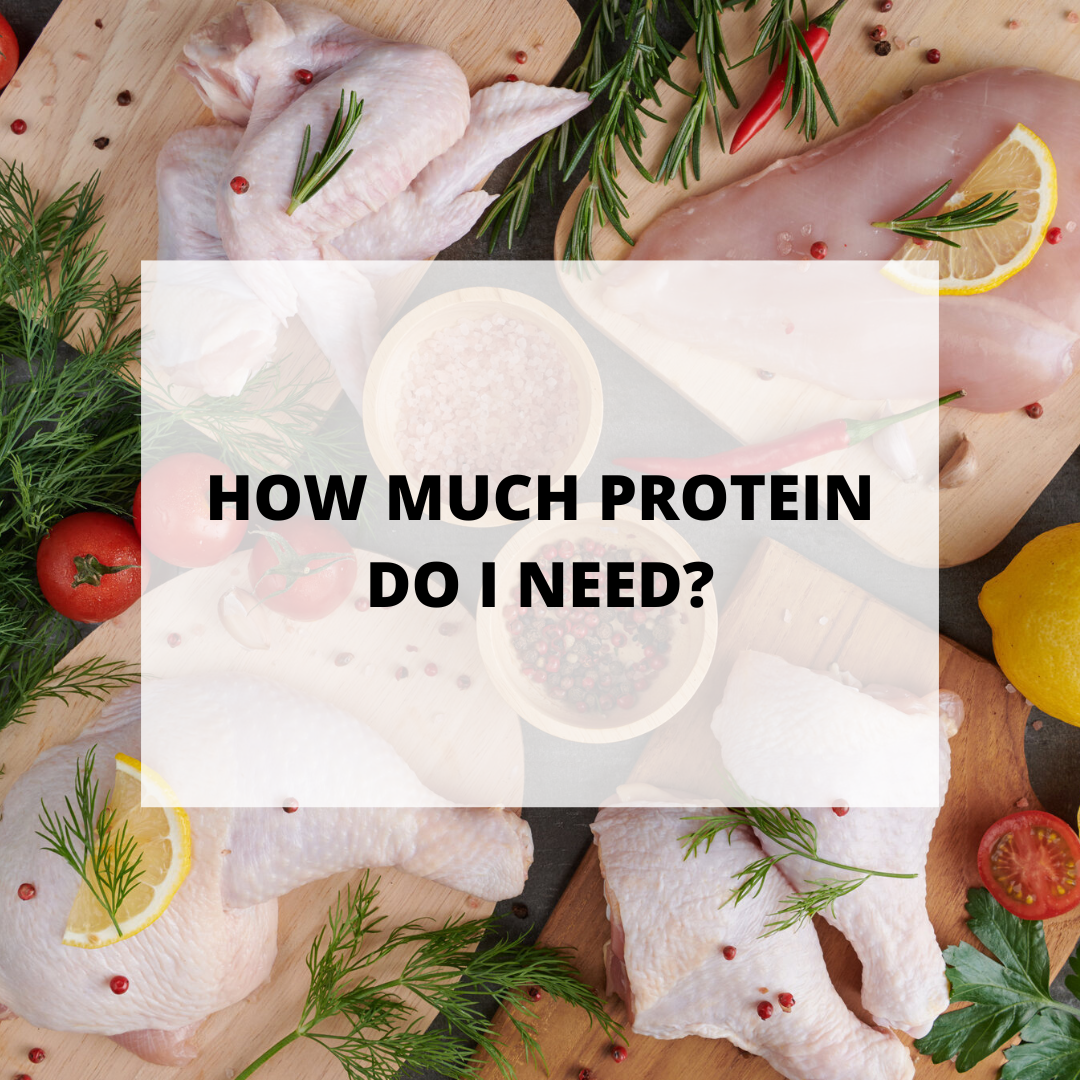
How Much Protein Do I Need?
Protein is an essential nutrient that plays a vital role in the growth and repair of tissues in your body. It's important to consume enough protein to meet your body's needs, but how much protein do you actually need? The answer depends on several factors, including your age, sex, weight, activity level, and overall health status.
GENERAL PROTEIN RECOMMENDATIONS
Wondering, how much protein do I need?
As a general guideline, the recommended daily intake of protein for adults is 0.8 grams per kilogram of body weight. For example, if you weigh 70 kilograms, you would need about 56 grams of protein per day. However, this recommendation is based on the average sedentary adult with minimal muscle mass.
If you are an athlete or engage in regular physical activity, you may need more protein to support muscle growth and repair. In this case, your protein needs may range from 1.2 to 2.0 grams per kilogram of body weight, depending on the type and intensity of your workouts.
HOW MUCH PROTEIN DO I NEED DEPENDING ON MY PERSONAL SITUATION?
It's important to note that protein needs can vary based on age and gender. For example, growing children and teenagers may need more protein to support their growth and development. Pregnant and breastfeeding women also need more protein to support the growth and development of their babies.
Here are some general protein recommendations based on age and gender:
- Infants (0-6 months): 9.1 grams per day
- Infants (7-12 months): 11 grams per day
- Children (1-3 years): 13 grams per day
- Children (4-8 years): 19 grams per day
- Girls (9-13 years): 34 grams per day
- Boys (9-13 years): 34 grams per day
- Girls (14-18 years): 46 grams per day
- Boys (14-18 years): 52 grams per day
- Women (19-70+ years): 46 grams per day
- Men (19-70+ years): 56 grams per day
- Protein Needs by Weight and Activity Level
Protein needs can also vary based on weight and activity level. People with higher body weights and muscle mass may need more protein than those with lower body weights and muscle mass. Similarly, people who engage in regular physical activity, especially strength training, may need more protein to support muscle growth and repair.
Here are some general protein recommendations based on weight and activity level:
- Sedentary adults: 0.8 grams per kilogram of body weight
- Endurance athletes: 1.2 to 1.4 grams per kilogram of body weight
- Strength athletes: 1.6 to 1.7 grams per kilogram of body weight
- Older adults: 1 to 1.2 grams per kilogram of body weight
WHAT HAPPENS IF YOU EAT MORE OR LESS PROTEIN THAN RECOMMENDED?
Consuming more protein than your body needs will not necessarily result in more muscle growth or better athletic performance. Consuming excessive amounts of protein can also strain your kidneys and may increase the risk of osteoporosis.
On the other hand, consuming less protein than your body needs can lead to muscle loss, impaired immune function, and delayed wound healing.
If you eat more or less protein than recommended for a day, don't worry too much. It's important to focus on meeting your protein needs on a regular basis, rather than obsessing over your intake on a day-to-day basis.
If you consistently eat less protein than recommended, you may want to consider incorporating more high-protein foods into your diet or talking to a registered dietitian to help you meet your protein needs.
EXAMPLE OF WHOLE FOODS THAT CONTAIN APPROXIMATELY 20 GRAMS OF PROTEIN
Keep asking yourself how much protein do I need? Here are some whole foods that contain approximately 20 grams of protein:
- 3 ounces of grilled chicken breast: A serving size of 3 ounces of grilled chicken breast provides about 20 grams of protein. This is a great option for those who are trying to increase their protein intake while also keeping their calorie intake in check. If you are an athlete or engage in regular physical activity, you may need more protein to support muscle growth and repair, so consult with a registered dietitian to determine your individual protein needs based on your unique circumstances.
- 1 cup of Greek yogurt: Greek yogurt is a great source of protein, with 1 cup providing about 20 grams. Greek yogurt is also a good source of calcium and probiotics, which can support digestive health. Incorporating Greek yogurt into your breakfast or as a snack can help you meet your daily protein needs.
- 3 ounces of canned tuna: Canned tuna is an affordable and convenient source of protein, with 3 ounces providing approximately 20 grams. It's also a good source of omega-3 fatty acids, which can support heart health. Be sure to choose canned tuna that is low in mercury, and consider pairing it with whole grain crackers or vegetables for a balanced snack.
- 1 cup of cooked lentils: Lentils are a vegetarian protein source that are also high in fiber, making them a great choice for those looking to increase their protein intake and support digestive health. 1 cup of cooked lentils contains approximately 20 grams of protein. Add lentils to soups, stews, or salads to increase your protein intake throughout the day.
These are just a few examples of whole foods that contain approximately 20 grams of protein. Incorporating these foods into your meals and snacks can help you meet your daily protein needs.
Don't ask yourself how much protein do I need anymore and generate a meal plan that fits your required number of proteins easily with AutoMealPlanner. It fits you food preferences and create a grocery list to make dieting hassle free.

